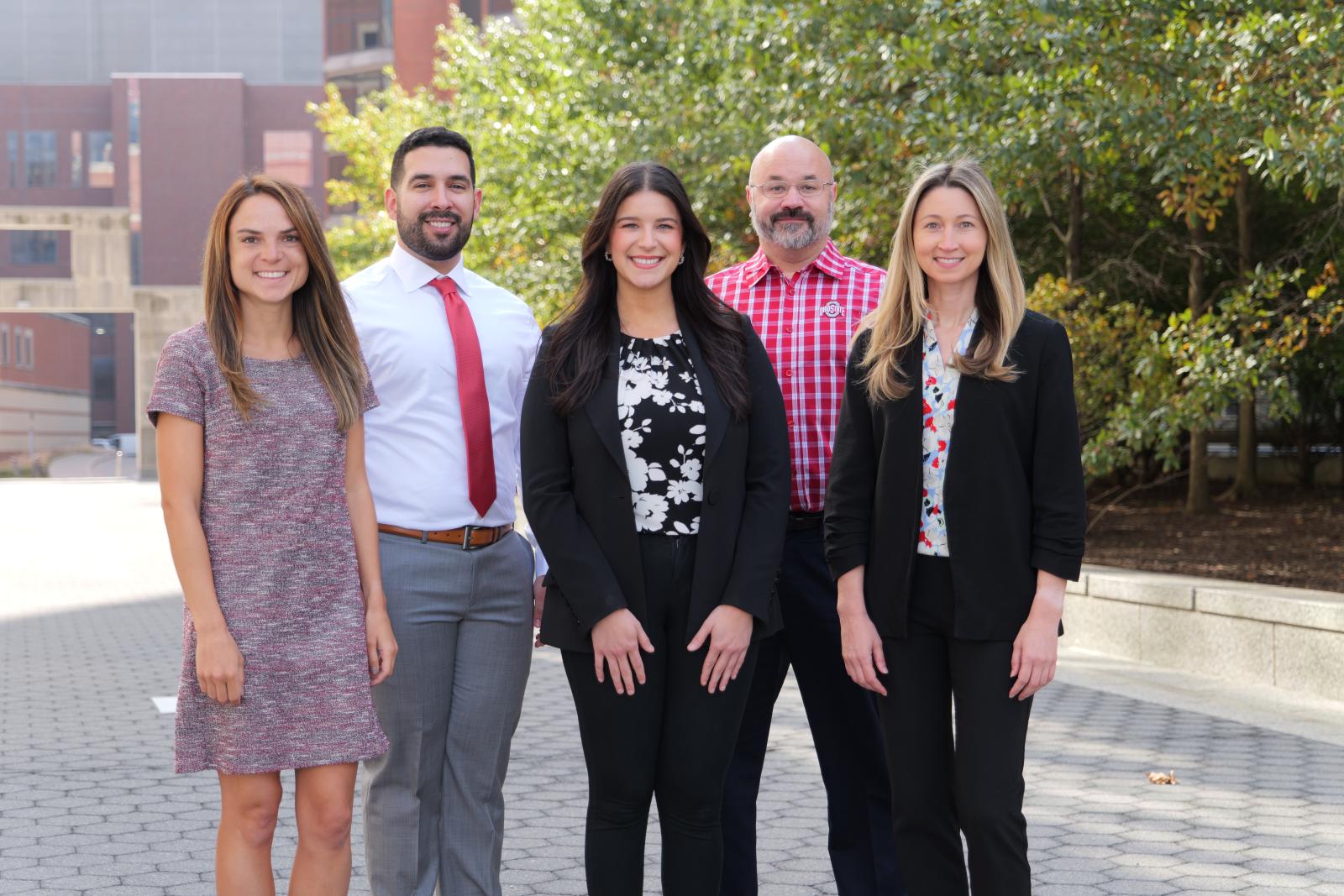Pharmacist-led drug repository program receives ASHP Best Practices Award

The Ohio State University Wexner Medical Center’s (OSUWMC) oral drug repository program was one of six national recipients of the American Society of Health-System Pharmacists (ASHP) 2023 Best Practices Award presented at the ASHP Midyear Clinical Meeting this month in Anaheim.
The program—the first of its kind in Ohio—was established in January 2020 to alleviate the financial burden of cancer treatment and the environmental impact of cancer medication disposal by collecting unused oral oncology medication donations and redistributing them to other patients.
Costly cancer therapeutics lead some patients to skip treatments and appointments or split medications—which can jeopardize their treatment.
“Patients in the oncology space spend so much time navigating our health care system,” Dr. Kennerly-Shah said. “They have high out-of-pocket expenses and there are a lot of barriers to their access to medications.”
The pharmacist-led drug repository is conducted through Ohio State’s Comprehensive Cancer Center – James Cancer Hospital and Solove Research Institute (OSUCCC – James) hematology/oncology clinics and the OSUWMC main campus outpatient pharmacy. Medication assistance coordinators and clinical pharmacists identify eligible patients and coordinate timely treatment based on available medications.
Since its launch, the repository has expanded from just two oral oncology medications to over 40. More than 18,000 tablets and capsules have been contributed to the program for re-dispensing—filling 141 prescriptions for 103 eligible patients.
The program has helped to save patients a total of nearly $2 million to date. It not only offers financial assistance to patients but is actively helping to ensure safer medication adherence. It also provides an opportunity for some patients to make a difference in other patients’ lives.
“Patients receiving medications are kind and appreciative,” Dr. Kennerly-Shah said. “But the best part has been the support and emotions from patients donating medications who are able to give back to someone experiencing a similar journey.”
The program was established by:
- Athena C. Triglia, PharmD, PGY2/MS Health-System Pharmacy Administration and Leadership Resident at OSUWMC
- Jennifer Booth, PharmD ’20, MS ’22, BCPS
- Andre Fernandes, PharmD, MS, BCPS, BCSCP
- Kevin Wolowiec, PharmD ’04
- Trisha Jordan, PharmD, MS ’01, Chief Pharmacy Officer and director for the Health-System Pharmacy Administration Residency Program at OSUWMC, assistant dean for medical center affairs at the College of Pharmacy
- Julie Kennerly-Shah, PharmD, MS ’14, MHA, BCPS
There were legal hurdles prior to establishing the repository. Program leaders advocated lifting restrictions on oral oncology drug donations in the state of Ohio to allow the collection of medications for redistribution to patients. They succeeded in easing those restrictions in late 2019, working with the Ohio Board of Pharmacy to establish program regulations and collecting drug donations for the planned repository in January 2020.
The repository program gave pharmacists another way to advocate for their patients. As the primary referral source for patients using the repository, OSUWMC clinical pharmacists continually seek ways to exercise this new resource to support patients with medication access concerns.
The group continues to advocate for more holistic and patient-centered cancer treatment and legislative changes to mitigate the burdens of those receiving or supporting someone receiving treatment.
Program leaders are now in the process of expanding the health-system formulary to include non-oncology medications, extending services to additional patient populations in need.
“One of the most exciting things about receiving the ASHP Best Practices Award is the opportunity to share our program with others and hopefully inspire other health systems to create similar programs,” Dr. Booth said. “We love meeting with other pharmacy leaders to share our experiences and lessons learned. It all ultimately supports the goal of helping patients receive the medications they need, while reducing overall medication waste.”